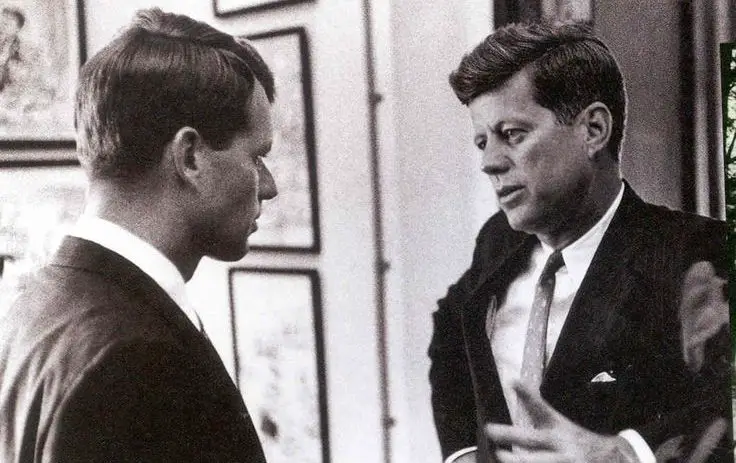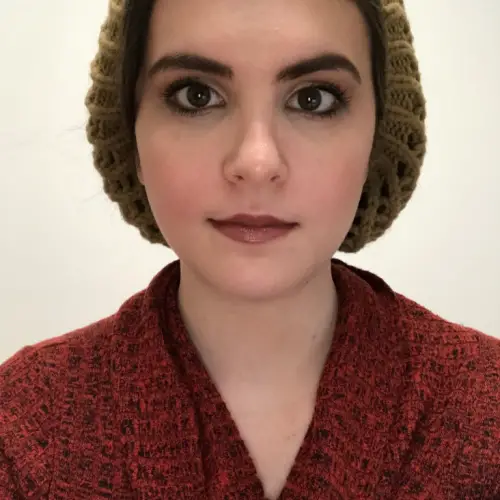If you are looking for a compelling political documentary to enjoy over the summer vacation, “Bobby Kennedy for President” is just for you. The documentary highlights the political life of the lesser known Kennedy brother, Robert. While many just associate him with the presidency of John F. Kennedy, it is important to remember that RFK had a political legacy of his own.
The documentary uses interviews and his owns words to piece together the political life of RFK. When watching “Bobby Kennedy for President,” people could not help but be blown away by the parallels between the 1968 election and today’s America.
The anger and violence in the country is incredibly similar and the way RFK handled the ever-changing political wheel was fascinating. “Bobby Kennedy for President” was able to give a compelling case for why young people today should be inspired by RFK.
Who was RFK?
Robert F. Kennedy was the third son of Joe and Rose Kennedy, and, of course, part of the famous Kennedy family. More commonly known as RFK, he ran the political campaigns of his brother John F. Kennedy and later served under his brother as Attorney General.
After his brother’s assassination, Robert became Senator of New York and later ran in the presidential primary of 1968, directly challenging the sitting president, Lyndon B. Johnson. RFK’s run was was successful and he had more or less won the Democratic primary by June 1968. However, RFK was shot on the night of his final primary win in California and died on June 6, 1968.
The Series
The series is divided into four episodes: the first focuses on RFK’s early career and time as Attorney General, the second focused on RFK’s time as Senator of New York, the third on the campaign of 1968 and the fourth on the aftermath of his assassination and legacy of his political life.
In general, the series does a good job of building a case for why we should like RFK and highlighting his admirable qualities but does not shy away from the brutality of his character. RFK, from a historical standpoint, has often been seen as the “Cold Kennedy.”
He was perceived to be a direct contrast to his brother John F Kennedy, who was known for his political charm. RFK, on the other hand, was known for being utterly ruthless in his political strategy. The series does note that RFK’s ruthlessness had surprising benefits as he was often driven by a quest for equality and fairness.
What We Can Take Away
With that being said, the series makes clear that RFK political life did not come off as something extremely progressive; for example, it was RFK who gave permission to wiretap Dr. Martin Luther King.
This should not shock anyone as RFK was born into a life of extreme wealth and privilege. It is understandable that he would not understand the problems of middle-class Americans or people of color. Yet what happened with RFK is he was consistently pushed by activists in his life to become more progressive.
As the series notes, after witnessing the hardships facing many Americans, RFK became devoted to bringing social justice to America. For example, during his time as Senator of New York, RFK visited with Cesar Chavez and made real efforts to help the struggling workers.
The series is successful in portraying that the presidential run in 1968 as one that was not built on ego but rather built on a sense of duty to the American people.
With all that in mind, personally I could not help but think of the 2016 election when watching this documentary. While it is not a one-to-one comparison, the anger in the country felt very similar.
In 1968, America was in an uproar as the anger over civil rights, the Vietnam war, and social programs had reached a boiling point. This felt incredibly familiar to the 2016 election, which also felt as if the country had reached a boiling point. Although there were many reasons for the 2016 election, I think most would agree that anger was largely driving the country.
During the 2016 election, the anger from the Democrats and college-age liberal groups resulted from the ideas that Hillary Clinton’s policies were not progressive enough. Many felt frustrated with Barack Obama’s final years and his lack of push toward progress, which led to many college-age people not voting or voting for third-party choices.
The anger in the country, while more muted, has not completely died down. In the past two years, this notion of progressive-purism has spilled over to other Democratic candidates, which is also challenged in “Bobby Kennedy for President.” RFK did not start his political career on the right side. It was only after he saw and learned about the suffering of others did his policy ideals change.
Today RFK is seen as a beacon of liberalism. If we are so quick to exclude politicians who do not meet our immediate standards, we may not get another RFK. Now, this is not to say young liberals must be active all the time, but rather they should be active in making politicians see their plight. Without people continually pushing and challenging, RFK he never would have changed his ideas.
“Bobby Kennedy for President” also reveals the power of students in this country. RFK’s backbone was his progressive youth voters, and in the 1960s, American students were able to bring real change to there country. College students watching the documentary can take great pride in knowing that in previous generations they faced similar dilemmas and were able to rise to the challenge.
Hopefully this documentary will be able to uplift those who feel the current issues we are facing are to great to bare. As RFK said right before his assassination “…we can work together. We are a great country, an unselfish country and a compassionate country…” In troubling political times, it’s important to look to past leaders and see how they met their challenges.

















